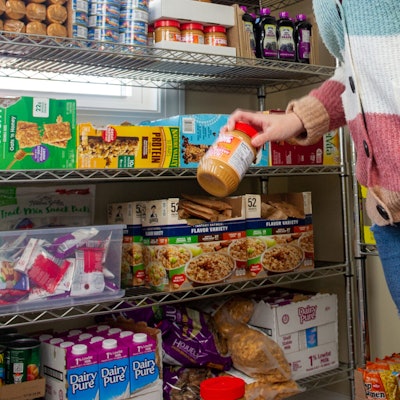
The report found that 59% of surveyed students experienced at least one form of basic needs insecurity related to food or housing. This includes 41% facing food insecurity, 48% experiencing housing insecurity, and 14% reporting homelessness within the past year.
When broadening the definition of basic needs to include mental health, transportation, internet access, and childcare, the percentage of students experiencing insecurity jumps to 73%, painting a stark picture of the challenges college students face while pursuing their education.
"Basic needs security is foundational to learning; without it, students are unable to fully engage in their studies—undermining their academic success and their ability to achieve economic security," the report notes.
The survey reveals significant disparities among different student populations. Nearly 75% of Black and Indigenous students reported facing at least one form of basic needs insecurity related to food and/or housing, compared to 55% of white students—a 20 percentage point gap. Indigenous students experienced homelessness at twice the rate of white students.
Other vulnerable groups also showed elevated rates of basic needs insecurity:
- 67% of parenting students experienced housing insecurity
- 72% of former foster youth faced housing insecurity
- 36% of students involved with the carceral system experienced homelessness
- 62% of students with disabilities reported basic needs insecurity
- 52% of Pell Grant recipients experienced food insecurity
Mental health emerged as another critical concern, with 44% of students reporting clinically significant symptoms of anxiety and/or depression. Among students who had previously stopped attending college before re-enrolling, 57% cited mental health issues as the reason for their departure.
Perhaps most troubling is the connection between basic needs insecurity and college persistence. Among students who had stopped out of college or were considering doing so, 79% cited basic needs insecurity as the cause, including emotional stress, mental health concerns, lack of money for living expenses, or insufficient financial aid.
Despite these widespread challenges, the survey found that many students aren't accessing available support. Almost two-thirds (65%) reported being unaware of available resources, and 51% of students experiencing basic needs insecurity did not receive any public benefits. Among students facing housing insecurity or homelessness, 88% did not utilize public housing or utility assistance.
The Hope Center calls for comprehensive policy reforms, including removing barriers to the Supplemental Nutrition Assistance Program (SNAP) for college students and eliminating restrictions that prevent students from accessing federal housing supports. The report notes that current federal policies often exclude students from critical safety net programs based on outdated assumptions about college students having family financial support.
"Federal policymakers should overhaul and simplify SNAP eligibility rules and ensure that all students with low incomes are able to seamlessly qualify for benefits," the report recommends.
The report also highlights institutional recommendations, including expanding campus support systems and creating "basic needs hubs" to help students navigate the complex web of available programs and services.
"Meeting students' basic needs assures their long-term health, improves their educational outcomes, and in turn, contributes to a more robust workforce and society," the report concludes. "By prioritizing basic needs security, we take a meaningful step toward a more equitable, compassionate world where every student has the resources and opportunities to thrive."















